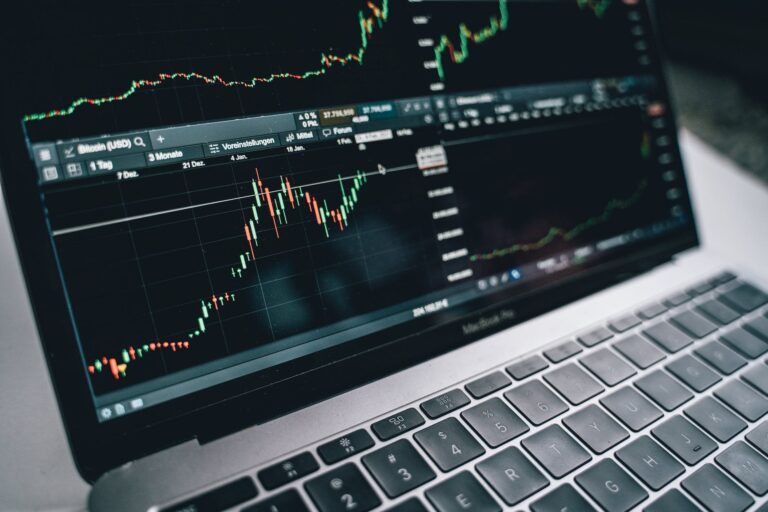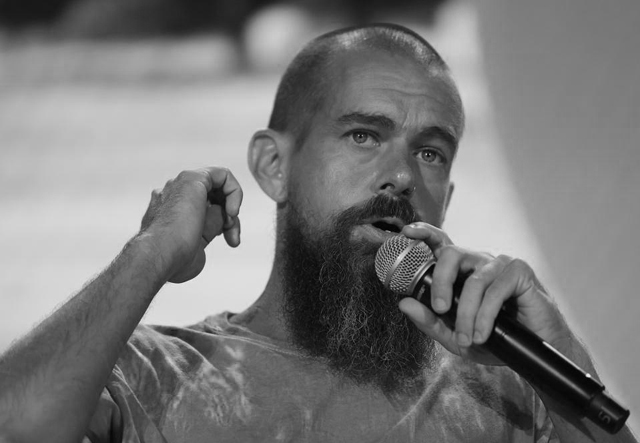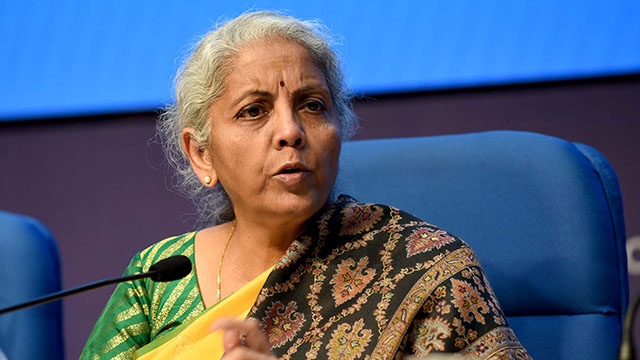A 106-page investigative report by Hindenburg Research has haemorrhaged India’s largest corporate conglomerate, Adani Group’s share prices since January 25th. Hindenburg Research’s investigation report on Adani Group, owned by Gautam Adani, who used to be the world’s third richest man on the Forbes list, made the conglomerate suffer a loss of US $6,500 (Rs 5.6 trillion) till January 30th.
Hindenburg Research’s investigation report on Adani has affected not only the integrated conglomerate, which has interests in ports, infrastructure, mining, power generation, agribusiness, media, logistics and airports, but also the Indian stock market investors and public sector entities like Life Insurance Corporation (LIC) and State Bank of India (SBI) that have invested in the conglomerate.
Mumbai’s Dalal Street-based Bombay Stock Exchange’s (BSE) Sensex lost over 1,400 points due to the crash caused by the downfall in Adani Group’s shares. The market capitalisation of all BSE-listed stocks has fallen to Rs 268.6 trillion, leaving the investors poorer by Rs 11.8 trillion. Since the release of Hindenburg Research’s report on Adani, Nifty touched a three-month low and even breached the 17,500 mark.
US-based Hindenburg Research is a privately-held short-seller firm that privately investigates and publishes reports on share price manipulation and other forms of financial fraud by corporates on the stock market.
The Indian conglomerate has strongly objected to Hindenburg Research’s investigation report on Adani and equated it with an attack on India itself. The Adani group has repeatedly threatened to sue Hindenburg Research and released a 413-page counter-report.
“This is not merely an unwarranted attack on any specific company but a calculated attack on India, the independence, integrity and quality of Indian institutions, and the growth story and ambition of India,” the report said.
On behalf of the Adani Group, its chief financial officer (CFO) Jugeshinder “Robbie” Singh, an Indian-origin Australian citizen, responded to Hindenburg Research’s investigation report on Monday, January 30th. Singh also requested the Securities and Exchange Board of India (SEBI) and the Attorney General (AG) of India to investigate the US-based firm and file a case against it in India.
However, responding to Adani Group’s initial lawsuit threat, Hindenburg Research welcomed the conglomerate to sue it in an American court. “If Adani is serious, it should also file suit in the US where we operate. We have a long list of documents we would demand in a legal discovery process,” the short seller had tweeted.
On Monday, Hindenburg Research expressed its confidence in India’s financial progress and democracy, saying, “[Adani]…predictably tried to lead the focus away from substantive issues and instead stoked a nationalist narrative, claiming our report amounted to a “calculated attack on India.” In short, the Adani Group has attempted to conflate its meteoric rise and the wealth of its Chairman, Gautam Adani, with the success of India itself.
We disagree. To be clear, we believe India is a vibrant democracy and an emerging superpower with an exciting future. We also believe India’s future is being held back by the Adani Group, which has draped itself in the Indian flag while systematically looting the nation.”
In response to Singh’s claims, Hindenburg Research said that out of the 413 pages of the conglomerate’s counter-report, only 30 pages addressed the allegations raised in their investigation.
“Adani failed to specifically answer 62 of our 88 questions. Of the questions it did answer, the group largely confirmed or attempted to sidestep our findings,” Hindenburg Research said.
Inside the Hindenburg Research’s investigation report on Adani
Hindenburg Research’s investigation report on Adani showed that Mr Adani’s personal wealth swelled by $100bn, and his net worth reached $120bn between 2019 and 2022 due to an average 819% increase in the share prices of his seven listed companies.
Hindenburg Research alleged a wide gap between the financial position of Adani’s companies and their share prices. The euphoric growth of the conglomerate’s stock prices resulted from fraudulent practices, the firm alleged in the report.
The investigation report alleged that 85% of the seven listed companies have downsides, which shows they are at extreme risk and attributed this to their fictitious valuations.
The report has also alleged that five out of seven listed companies have borrowed heavily from the market based on their inflated share prices, causing their current ratio to fall below one, “indicating near-term liquidity pressure”.
Moreover, it has been alleged that out of the 22 key representatives of the Adani Group, eight are members of Mr Adani’s family. As a result, the management of the Adani Group remains highly opaque, despite its high stock prices.
The biggest allegation in the Hindenburg Research report on Adani is that the group inflated its share prices artificially by routing investments through dubious foreign shell companies and funds.
The report has provided various proofs in favour of its accusation that the ownership of these anonymous shell companies—formed in various tax havens like Mauritius, Cyprus, the United Arab Emirates and countries in the Caribbean Islands—is actually in the hands of the Adani Group and Mr Adani’s family members.
The report said that most of these companies, 38 of which are registered in Mauritius, have no business activities other than investing in the Adani Group. Most of these companies don’t even have their websites, and those that have, provide no information regarding their team structure, leading people and management. Yet these companies have invested billions in Adani Group’s shares.
As per SEBI’s guidelines, listed public companies in India must sell at least 25% of their shares to the general investors, sans their promoters and directors, to mitigate the risk of insider trading. Hindenburg Research alleges that at least four Adani Group companies are already on the verge of crossing the threshold of 75% shareholding.
The Hindenburg Research report claimed that if the SEBI makes a fair inquiry into the issue, the Adani Group may see four listed entities being delisted.
The graph below shows these companies’ suspected shareholding proportion of “insiders”.
Unscrupulous funds and shell companies
Elara is one of the doubtful shell companies and funds indicted in Hindenburg Research’s investigation report on Adani. Elara has almost $3bn in concentrated holdings of Adani Group’s shares. It also has a fund that is 99% concentrated in Adani.
Hindenburg Research’s investigation report on Adani alleged that the CEO of Elara had closely worked with Dharmesh Doshi, a close accomplice of Ketan Parekh. Parekh was convicted in 2008 in the Indian stock market manipulation scam. The report alleged that the Elara CEO even worked with Doshi when he evaded arrest in India and became a fugitive.
Five supposedly independent funds are owned by a firm called Monterosa, which has bought a $4.5 billion-worth (Rs 360bn) stake in Adani Enterprises Ltd (AEL). Monterosa’s CEO allegedly worked as a director in three companies with a diamond merchant who fled India after stealing nearly $1 billion from India. On the other hand, Mr Adani’s brother Vinod Adani’s daughter is reportedly married to the son of this fugitive diamond merchant.
Cyprus-based New Liana Investments owns $4.2bn worth of shares in Adani Green Energy, which is close to 95% of the company’s overall portfolio. A service fund called AmiCorp operates New Liana. AmiCorp allegedly helped Adani Group in expanding the conglomerate’s branches abroad.
Amicorp also set up seven promoter entities of the Adani Group, along with at least 17 foreign shell companies linked to Vinod Adani and at least three foreign shareholder companies of the Mauritius-based shareholders of the Adani Group. This Amicorp is accused of financial fraud of $4.5bn in Malaysia.
FPO and falling prices of shares
Among these, the Adani Group’s follow-up offering (FPO) in the Indian stock market saw a fresh issuance of Rs 200bn worth of shares. But as investors’ confidence in the market did not return, the share prices of many Adani Group companies collapsed on Monday like the previous week.
The following graph shows how Hindenburg Research’s research report on Adani caused a decline in the group’s stock prices.
Reluctant or nonchalant government
Although India’s opposition parties have been complaining for a long time about Mr Adani’s closeness to the ruling Bharatiya Janata Party (BJP) and Prime Minister Narendra Modi, there has been no investigation into the issue.
Reporting on various financial manipulations by the Adani Group in the past has led to lawsuits against journalists like Ravi Nair and Paranjay Guhathakurta. While Guhathakurta was sacked from the position of the editor of the Economic and Political Weekly (EPW), the Delhi Police registered a case against Nair.
A few days ago, Mr Adani appeared on a TV show hosted by an anchor close to the BJP and said that he always accepts criticism with an open mind, and for him, the message is more valuable than the messenger.
However, there have been allegations that the Modi government purportedly exerted pressure on media houses and journalists to restrain them from reporting on the activities of the Adani Group, which has been linked to financial scams at least four times in India. The Adani Group had sued independent media houses like The Wire for publishing the news on the conglomerate’s alleged involvement in a scam.
Although Hindenburg Research’s investigation report on Adani has created a stir in stock markets and politics, the Modi government, which has often used anti-corruption rhetoric to hit back at its opponents, has yet to comment on the allegations. Neither the SEBI nor the Enforcement Directorate (ED) has initiated any probe into Hindenburg Research’s investigation report on Adani.
The opposition has long complained that these investigative agencies have lost their autonomy under the Modi government and are only investigating opposition parties for political reasons rather than chasing capitalists accused of being close to the BJP like Adani.
Although the SEBI and the ED have mentioned several cases on their websites, they remain silent on such a massive corruption allegation against the country’s largest corporate body, which raises doubts about their modus operandi and motives.
One of the largest accusations of stock market manipulation is blatantly ignored by the SEBI, and no action has been taken so far by the body to probe the Adani Group, which shows that the conglomerate may continue enjoying the impunity with which it has hitherto operated.
India’s Home Ministry, National Security Adviser Ajit Doval, Finance Minister Nirmala Sitharaman or Defence Minister Rajnath Singh did not comment on the Adani Group’s allegations that the Hindenburg Research report declared war on India and would stall the country’s financial progress.
Many questions also arise as to why the Modi government is ignoring this collapse of the Indian stock market and why it is silent on the market’s collapse as a result of the Hindenburg Research report on the billions of rupees invested by large public sector companies. Whether the government and its agencies will wake up and act against the conglomerate accused of corrupt practices or whether it will continue to patronise it is yet to be seen.
Tanmoy Ibrahim is a journalist who writes extensively on geopolitics and political economy. During his two-decade-long career, he has written extensively on the economic aspects behind the rise of the ultra-right forces and communalism in India. A life-long student of the dynamic praxis of geopolitics, he emphasises the need for a multipolar world with multilateral ties for a peaceful future for all.







